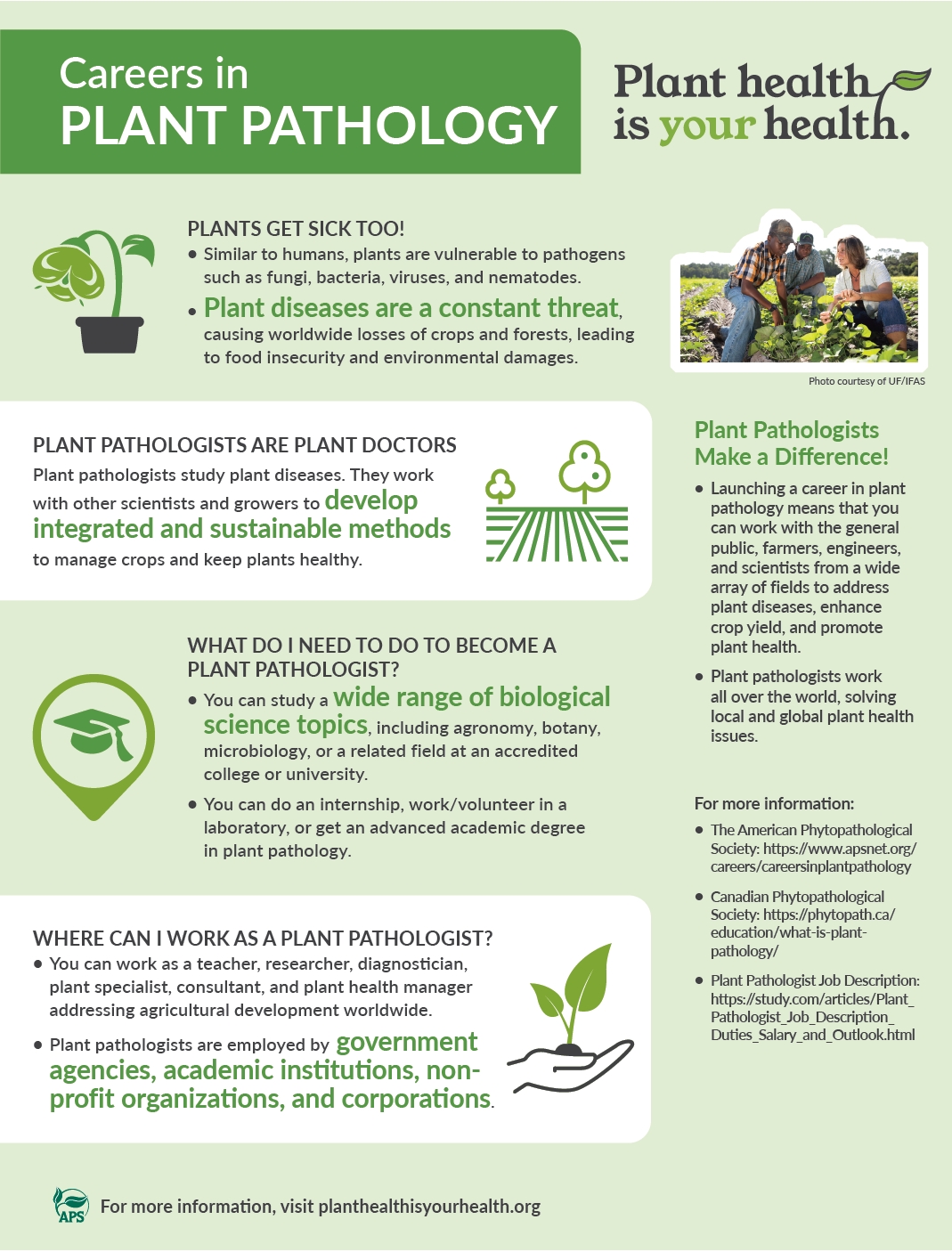July 2020
Careers in Plant Pathology
What are you going to be when you 'grow up'? It's a question you are likely to hear from friends and family for years to come. Why not choose a profession that enables sustainability, economic stability, and social justice? Why not choose a profession that
makes a difference in the world? Plants get sick too. In this age of COVID, it is easy to focus on human health. But plants, like humans, are impacted by viruses...and also fungi, bacteria, nematodes and many other types of pathogens.
Plant diseases threaten natural environments and food production. Plant diseases in farms, forests, and urban environments can lead to excessive misuse of pesticides and cost millions of dollars.

Fortunately, plant pathologists are on the forefront of
promoting plant health and sustainable plant disease management choices. These scientists are literal plant doctors trained in diagnosing disease, tracking disease, tracking disease spread, and managing or preventing diseases. But their patients aren't humans - they are plants! The work of plant pathologists and scientists working in related fields like entomology and soil science provides knowledge of how pathogens spread. tools to quickly identify pathogens and the diseases they cause, and sustainable and effective strategies for plant health management. Plant pathologists work in government, industry and university settings ranging from farm fields to laboratories.
A career in plant pathology can take you to literally every corner of the globe and the work you do has the potential to impact billions of people globally.
How do you become a plant pathologist? If you want to be a plant pathologist, study biology, plant science, agronomy, microbiology, and related topics. Our field is very "hands on" - there is no substitute for actually
seeing and doing plant pathology. Consider pursuing an internship in a research lab at a nearby university, government agency, or agriculture-related company; seek out advice from professionals in the field including crop consultants, forest managers, science communicators, or scientists; follow plant pathologists on social media; and check out the website for the
American Phytopathological Society. With a growing world population, changing climate, and increased pressure on our environment,
now is the
perfect time to pursue a career in plant pathology! You will be glad you did.
Plant Health Is Your Health!
View Spanish Version
View Portuguese Version
View Chinese Version
